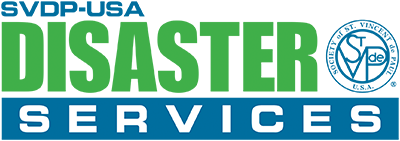

Check on Your Neighbor
After a disaster like Hurricane Helene and Hurricane Milton, it's crucial to check on your neighbors, especially those who may require additional support, such as older adults or individuals with life-sustaining medical equipment. Ensure their safety and help them access any resources they may need.
Tip: Be mindful of power outages that may affect their air conditioning and medical devices. Offer assistance where possible.
Family Reunification
In the aftermath of Hurricane Helene and Hurricane Milton, family reunification can be challenging. If you need to report a missing child, please contact the National Center for Missing & Exploited Children (NCMEC) at 1-800-843-5678, which operates the National Emergency Child Locator Center. You can also use the Unaccompanied Minors Registry to enter basic information about the child, including a recent photo if available. This helps authorities expedite the process of reconnecting families.
For families and friends seeking loved ones, we recommend checking social network sites and using the American Red Cross Safe and Well program to communicate that you are safe or looking for others.
Note: Please inform NCMEC if the missing child has any disabilities or functional needs.
Debris Removal Guidelines
Cleaning up after Hurricane Helene and Hurricane Milton can be dangerous. Before starting the process, it is important to document any damage.Take clear photos of your home and belongings, make a list of damaged or lost items, and gather any receipts.This information will be crucial for insurance claims and applying for assistance programs.
When cleaning up, please remember to:
- Wear protective clothing, including long pants, goggles, gloves, and sturdy shoes.
- Avoid entering damaged structures, as they may be unsafe.
- Be aware of wildlife such as snakes or displaced animals that may be hiding in debris.
- Following these guidelines can help ensure your safety during the recovery process.
Power Outages
Hurricane Helene may cause widespread power outages. To stay safe during this time, please follow these guidelines:
- Keep refrigerators and freezers closed as much as possible to preserve food.
- Unplug electronics to avoid damage from potential power surges when electricity is restored.
- Always place generators outside and ensure they are at least 20 feet away from your home to avoid carbon monoxide poisoning.
- Never use gas stoves or ovens to heat your home.
Once power is restored, wait a few minutes before turning on major appliances to prevent overloading the system. For safety, discard any perishable food that has been exposed to temperatures above 40°F for more than two hours. Additionally, any refrigerated medications that should have been kept cold may need to be replaced—check the drug label for guidance.
How to Help
Many people want to help survivors of Hurricane Helene and Hurricane Milton, and financial contributions to trusted organizations are the best way to provide support. Disaster Services Corporation, SVDP-USA (DSC) is a National Voluntary Organizations Active in Disaster (NVOAD) founding member. The National Council of the Society of St. Vincent de Paul, DSC's parent organization is one of the oldest recognized charities in the world.
Your donation, no matter the size, will provide immediate relief to those affected by Hurricane Helene. Here’s how your contribution can make an impact:
Vital Assistance - $150
Donate to provide life-saving support after disasters. Your contribution delivers hope, essential supplies, and a chance for resilience to those affected by Hurricane Helene and Hurricane Milton. Make an impact today!
Lifesaving Funds, Be a Lifeline - $500
Help survivors access immediate relief, including temporary housing, essential supplies, and recovery costs. Be the lifeline they need in this critical moment.
Support a Family - $1,000
Extend vital aid to families in crisis. Your donation provides the resources necessary for survival, rebuilding, and healing in the aftermath of this disaster. Make a meaningful impact today!
Every dollar you donate brings us one step closer to restoring hope for these families. Please share this page with your family, friends, and social networks to expand our reach.
Please do not self-deploy to disaster zones; instead, work through established organizations that ensure volunteers have the necessary training, safety measures, and skills to assist effectively.
Beware of Fraud & Scams
Unfortunately, disasters often bring out scammers looking to take advantage of survivors. Be cautious of anyone asking for money in exchange for disaster assistance, as local and federal disaster workers do not solicit or accept payment.
To protect yourself, only rely on information from official sources, such as local government agencies, FEMA, and recognized disaster relief organizations. If you encounter a potential scam, report it to local authorities.
Crisis Counseling
The stress and trauma caused by Hurricane Helene and Hurricane Milton can affect your mental health. It’s important to understand the signs of disaster-related stress, which may include difficulty sleeping, disorientation, loss of appetite, feelings of hopelessness, or depression.
If you or a loved one are experiencing any of these symptoms, help is available. The Substance Abuse and Mental Health Services Administration (SAMHSA) Disaster Distress Helpline provides free, confidential support 24/7. You can speak with a trained counselor by calling 1-800-985-5990 or visiting the SAMHSA Disaster Distress Helpline website. If you are deaf or hard of hearing, use your mobile device to connect with an American Sign Language (ASL) fluent crisis worker via the “ASL Now” service on the SAMHSA website.
